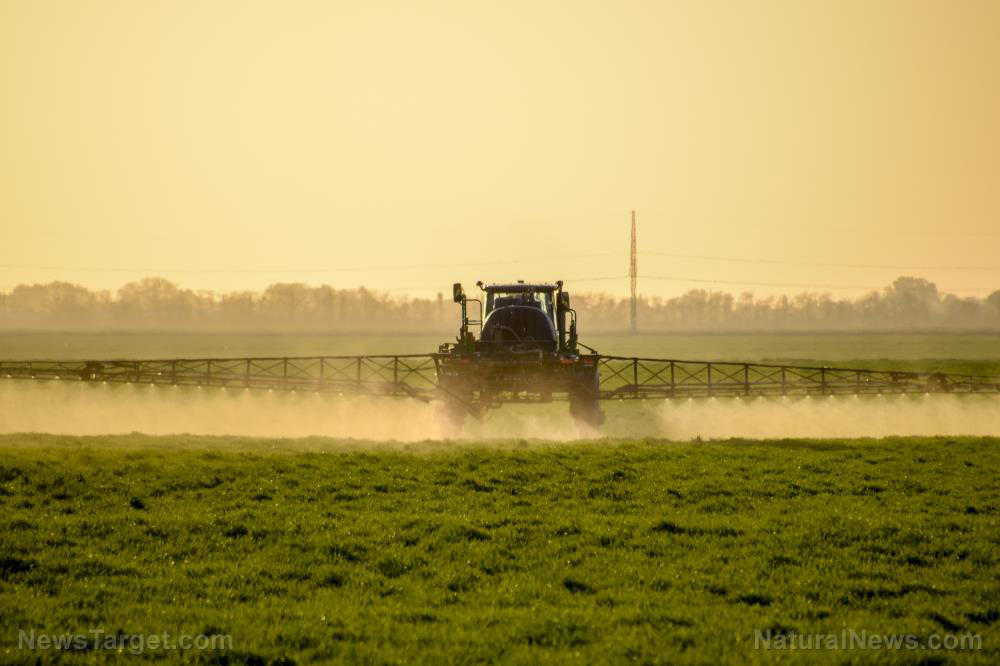Exposure to glyphosate increases risk of cancer by more than 40%
06/14/2019 / By Cassie B.

The recent legal victories of people who developed cancer following glyphosate exposure have attracted a lot of headlines, with tens of millions of dollars being awarded to individuals and many other pending lawsuits expected to have similar outcomes. Yet the maker of glyphosate-based Roundup, Monsanto, continues to insist that their products are safe and the risk is exaggerated. However, it’s going to be hard to argue with a new meta-analysis that shows just how strong the link is between exposure to glyphosate-based herbicides like Roundup and a higher risk of non-Hodgkin lymphoma.
The new paper, which is a comprehensive review encompassing epidemiologic studies that were published from 2001 to 2018, found that those with high exposure to glyphosate have a 41 percent higher risk of developing non-Hodgkin lymphoma.
The study is considered the most up-to-date analysis of the link between glyphosate exposure and non-Hodgkin lymphoma, and it looked at tens of thousands of people to reach its conclusions. It examined all human studies published during the time period in question, focusing on people with high exposure to the pesticide to reduce any potentially skewing confounding factors, as well as some animal studies and other types of glyphosate studies.
These findings contradict assurances of safety from the EPA, who said in 2017 that they believe the chemical is “not likely to be carcinogenic to humans” – despite the International Agency for Research on Cancer, part of the U.N.’s World Health Organization, declaring it “probably carcinogenic to humans” in 2015.

Study co-author Lianne Sheppard of the University of Washington’s Environmental and Occupational Health Sciences Department commented: “This paper makes a stronger case than previous meta-analyses that there is evidence of an increased risk of NHL due to glyphosate exposure. From a population health point of view there are some real concerns.”
Sheppard served as a scientific adviser to the EPA on glyphosate and was one of several advisers who told the agency that it didn’t follow proper protocols when determining glyphosate was unlikely to cause cancer because there is indeed evidence it is carcinogenic. The EPA has said they are “reviewing” the study.
It’s worth noting that this particular meta-analysis – a type of analysis that involves combining the results of a series of existing scientific studies to find bigger-picture trends – included a study that the pro-glyphosate lobby likes to cite, last year’s Agricultural Health Study, which found no firm association between pesticide exposure and cancer. The fact that the meta-analysis still found such a high degree of risk, even after taking this study into account, shows what an outlier that particular study is and how grave the danger truly is.
How long will Monsanto be able to defend its toxic practices?
Monsanto and owner Bayer are currently facing more than 9,000 lawsuits in the United States on behalf of people who suffer from non-Hodgkin lymphoma following exposure to their glyphosate-based herbicides. The findings of the analysis, which were published in the journal Mutation Research/Reviews in Mutation Research, could hurt Monsanto’s defense. The publication’s editor in chief is EPA Genetic Toxicologist David DeMarini.
Bayer and Monsanto are, quite predictably, trying to downplay the results of the study because the researchers focused only on people with a high exposure to pesticides, but people with a very low exposure were left out because they can dilute risk estimates.
The researchers say they focused on the highest exposed groups in each study because those people are most likely to have a greater risk should glyphosate indeed cause cancer. If there was no connection, even those who are highly exposed wouldn’t develop cancer at any significant rate – but that’s not what they found. For Monsanto, it’s becoming an increasingly tough task to convincingly deny the dangers of toxic glyphosate.
Sources for this article include:
Submit a correction >>
Tagged Under:
evil corporation, glyphosate, herbicides, Monsanto, non-Hodgkin lymphoma, poison, prevention, research, Roundup, toxic chemicals, toxins
This article may contain statements that reflect the opinion of the author




















